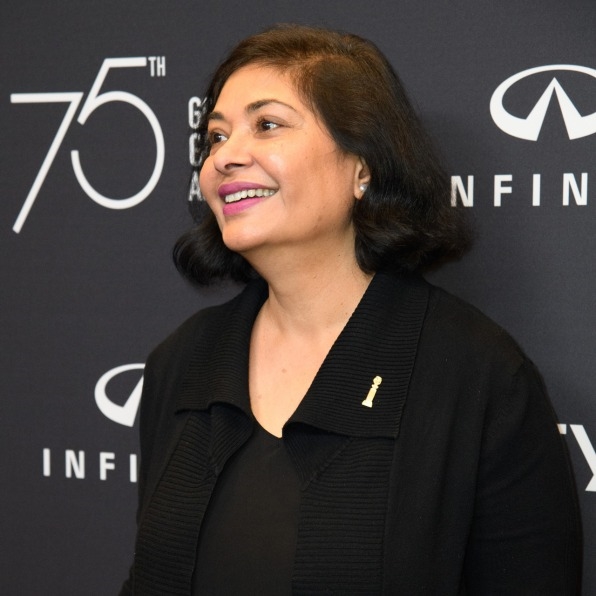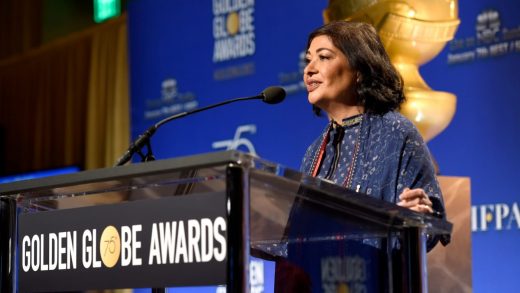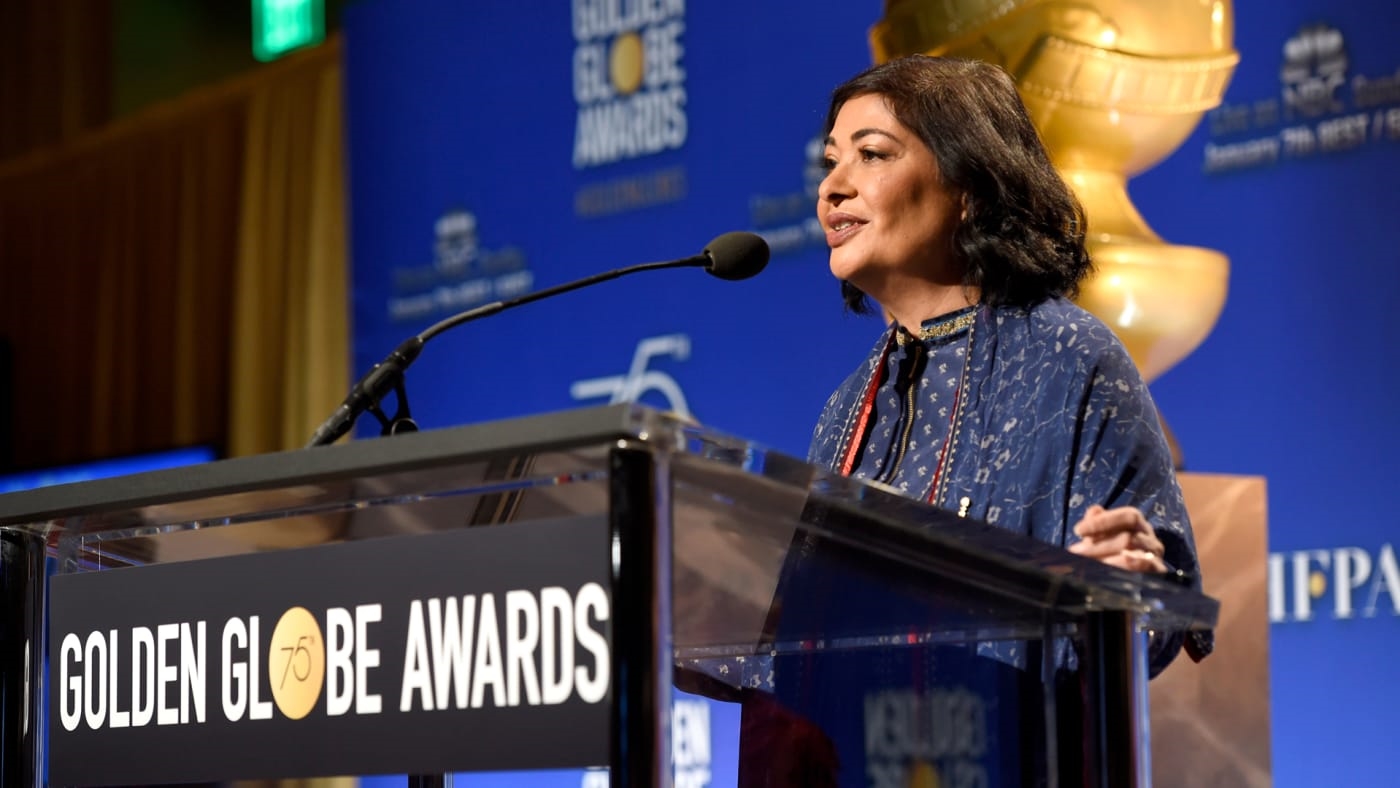This woman is putting Hollywood’s money where its mouth is
Meher Tatna isn’t a household name. In fact, the only time the current president of the Hollywood Foreign Press Association (HFPA) made recent headlines since she took the role last year was for wearing red to the last Golden Globes when all the female attendees wore black in solidarity for the Time’s Up movement. As a native of India, she adhered to the cultural norm of wearing red to celebrations.
The annual awards ceremony, which is put on by the HFPA, has drawn criticism from actors, journalists, and others that the Globes aren’t relevant, are somehow paid for by the winners, etc. But Tatna’s job– and the HFPA itself–expands far beyond the award show.

For more than 25 years, the organization has donated over $30 million to entertainment-related nonprofit organizations, academic programs, and humanitarian efforts, provided more than 1,500 scholarships, and have helped restore over 90 titles. Licensing fees obtained from the Golden Globe Awards has allowed the HFPA to support over 60 nonprofits focused on education in film and television, film preservation, journalistic organizations committed to freedom of speech, as well as organizations that support natural disaster relief and other international crises. (The HFPA’s latest $250,000 donation was to RAICES, the nonprofit helping families separated at the Texas border.)
Now Tatna wants to shine a light on what the 90 or so members are doing in the wake of #Metoo, Times Up, and the general lack of diversity in American film.
In addition to her role as president of HFPA, she is a contributor to Singapore’s The New Paper, interviewing scores of A-listers like Amy Adams, Jodie Foster, and Shailene Woodley about their work both in front of the camera and behind the scenes. And her decades of work as a reporter, as well as an actress, informs her passion for promoting women and underrepresented minorities in both film and journalism.
The moral imperative of her role
In the wake of #Metoo, Tatna contends, “It felt kind of fitting that I could lead the association.” Yet she notes that her appointment wasn’t just a nod to diversity. “I have to say we are very diverse in the HFPA, and there have been other women presidents.” More importantly, she says, “I have had my own stories about being in these situations,” recalling getting harassed years ago when she was waiting tables and trying to get an acting career off the ground.
As a consequence, “learning to stand up for myself has taken a while,” Tatna confesses, because she comes from a culture that is so dominated by men. But even as she admits she’s still not that good at speaking out, Tatna has come to realize her own worth and the responsibility of her position. That’s why she’s quick to add, “You deserve the place that you earned, therefore it should be respected.”
She and the other journalist members of the HFPA have pushed to continue covering the stories of discrimination and harassment. There’s a moral imperative according to Tatna to continue to raise the profile of women who had the strength to speak up about what happened to them.
“Every single press conference we have with a woman, we always ask them for their experience,” she observes. Most recently, that meant Mira Sorvino did a podcast for the HFPA in which she spoke candidly for the first time about being harassed, says Tatna. “The story has to be continued until there’s no need for it anymore,” Tatna says, noting that change takes time.
Little victories
But she also says that another way to shine the light on women’s experiences in the industry is to celebrate their victories. “I spoke to Cate Blanchett who turned down a role where she wasn’t given equal money as her male costar,” notes Tatna. Focusing on the strides these women are making is the way to keep the stories alive. “Little victories and the big ones,” she underscores.
The HFPA also gives some of the revenue generated by Golden Globes licensing fees to other charities that support young people interested in making their mark in film. This is of particular interest to Tatna who came to the U.S. on scholarship to Brandeis University with only $500 in her pocket. “My parents could not have afforded to send me,” she remembers, “but I got a leg up.” As such, she wants to pay it forward and give that opportunity to others with the HFPA Fellowships. These grants may be designated for student support, tuition and/or other direct educational expenses, and/or the costs associated with developing and producing student film projects required for graduation.
The HFPA is expanding its focus on humanitarian grants as well, particularly for journalist associations such as the International Consortium of Investigative Journalists, she says. “We are immigrants in the HFPA, and most of us are journalists, so this is close to our heart,” Tatna maintains. Even if a majority of the membership doesn’t do hard news, including herself, some do. “We feel the need to support the ones on the front lines who do the hard work of bringing the news to people,” she says, “Our support is crucial today, more than ever.”
“My mandate was to raise the profile of the HFPA,” she explains. Everybody knows the Golden Globes, Tatna says with a sigh. But now as they are trying to bring in more members, she believes the perception is changing. “The fact that we do make these donations is a serious goal of ours, to empower future generations of underrepresented students, for film restoration and preserving Hollywood legacy, and to ensure the journalistic work is continuing.”
(39)



